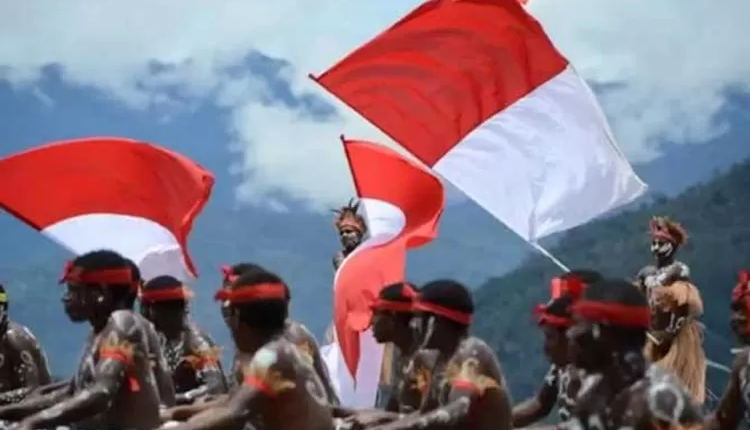Appreciation of the Government’s Commitment to Developing Human Resources in Papua for a Sustainable Future
By: Yulius Lebe*)
The Indonesian government continues to demonstrate its seriousness in developing Papua, especially in terms of human resource development. (SDM). Papua is recognized to have great potential, but complex development challenges are also ahead. In recent years, the government’s efforts to accelerate sustainable development in Papua have become increasingly evident, particularly in improving the quality of local human resources. Through various policies and strategic programs, the government is striving to create a brighter future for the upcoming generations of Papua.
Papua has unique geographical and cultural characteristics, making development in this region particularly challenging. One of the biggest challenges is the limited spread of infrastructure and the gap in access to education and healthcare. Therefore, human resource development in Papua becomes a primary focus in creating sustainable development.
The Minister of Communication and Information, Budi Arie Setiadi, emphasized that the development of Papua is key to realizing the vision of an Advanced Indonesia. Budi stated that building Papua, with a population of around 3.9 million people, requires the involvement of local residents and their wisdom.
The government has designed various policies aimed at improving the quality of life for the people of Papua. One important initiative is the development of green growth, which is emphasized in the West Papua region. In this strategy, the government is committed to preserving the environment while improving the quality of human resources by providing better access to education and training.
The concrete steps taken by the government to support the acceleration of development in Papua are outlined in Presidential Regulation (Perpres) Number 24 of 2023. This regulation provides a legal basis for systematic efforts to build infrastructure, economy, and education in Papua. One of the main pillars of this regulation is the development of human resources through the improvement of education quality and vocational training.
With a more inclusive education program, the government hopes to prepare the young generation of Papua to become a more competitive workforce at both national and international levels. The government has also prioritized vocational education in Papua, which allows the youth of Papua to develop practical skills that align with the current labor market needs.
The improvement of access to education and skills training is key to the government’s efforts in building human resources in Papua. One of the main focuses is to provide training for the youth of Papua so that they possess skills relevant to the needs of the job market. This is reflected in the government’s commitment to establish more vocational and technical training centers in Papua, especially in areas that are still lagging in terms of educational infrastructure development.
The founder of the Bicara Foundation in West Papua, Andi Sastra Beni Saragih, stated that indigenous communities with diverse cultures are social entities that hold a very strategic position. This has become a primary concern for the local government, which has involved indigenous community groups in every development agenda in an inclusive and sustainable manner.
The government is also collaborating with the private sector in this skills training effort. Through partnerships with various companies and industries, the youth of Papua are given the opportunity to intern and learn directly from the field. This provides them with practical experience that is very important in the workforce.
The government realizes that a sustainable future involves not only the development of physical infrastructure but also the need for human resource development capable of wisely managing the natural potential and cultural wealth of Papua. Therefore, the government is focusing on improving education in strategic fields such as information technology, the environment, and natural resource management.
In recent years, the government has increased investment in the education sector in Papua by building more schools, universities, and skill training centers, ensuring that quality education is accessible to all Papuans, even in remote areas. The government is giving special attention to education in areas relevant to sustainable development needs, such as green technology, environmental conservation, and natural resource management.
Not only focusing on education, the government is also building infrastructure that supports human resource development in Papua. The construction of roads, bridges, and digital infrastructure is an important step in accelerating access to education and other public services. Good infrastructure allows the people of Papua to have easier access to schools, training centers, and healthcare facilities.
The government has also invested in digital infrastructure that allows the people of Papua to access the internet more easily. With internet access, the people of Papua can connect with the outside world, obtain up-to-date information, and keep up with rapid technological developments. This is an important step in preparing the people of Papua to face challenges in the digital era.
The government’s commitment to developing human resources in Papua for a sustainable future is a step that deserves appreciation. Through various educational programs, skills training, and infrastructure development, the government is striving to create a better future for the people of Papua. Although there are still many challenges, with good cooperation between the government, the private sector, and local communities, Papua has great potential to develop into an advanced and sustainable region.
The efforts made by the government are not only focused on physical development but also on empowering the Papuan community through education and skill development. Thus, Papua can become a region that is not only rich in natural resources but also has superior human resources ready to face future challenges.
*) The author is an Economic Observer at the Nusaflix Research Institute.
